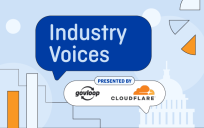The set up
Last week I want to a conference called Open Source // Open Society (OS//OS). While conferences are great opportunities to learn new things, I normally wouldn’t blog about one. But this one got me thinking about the ‘open society’ aspect and how it fits with government, especially with the work my team is doing.
Now, as much as I’d like to claim divine inspiration for choosing to attend OS//OS, it was sheer chance: our Govt.nz product team was a sponsor so there were some spare tickets. It was a busy week: someone asked me if I wanted to go to an open source conference; I said yes.
I went with zero expectations and a vague idea that it would be technology-focused. Of the 400 people at the conference, probably 20% were working for government. The rest were developers, community organizers, vendors, digital strategists and IT professionals.
The context
Now, the US has already started down the open source path by publishing the Whitehouse Digital Strategy using Bootstrap and the Whitehouse open data policy using GitHub for contributions.
New Zealand is more focused on:
- getting public sector agency-owned data cleaned up and released via data.govt.nz
- promoting common capabilities like the Common Web Platform to agencies
- getting underway on our Open Government Partnership commitments.
The discussion
What came out most strongly in the discussions at the conference was the chasm in understanding between government and non-government people. The non-government perspective was “Just release everything! What’s so hard about that?” The subtext was, “What are you trying to hide?”
The government perspective was, “We don’t have the capacity or capability for that. We have constraints – legislative, regulatory, Privacy Act etc – that we’re bound by. You don’t understand how the machinery of government works.” The subtext was, “Do you have any idea how much that would cost?”
Bear in mind that this was a composite of 2 days’ worth of conversations, comments and presentations. The people were a random assortment of public sector and private sector employees. Others that I spoke to (not all government people) expressed similar thoughts about this us vs them theme.
And then…
It occurred to me: why shouldn’t people expect government to meet their needs? I certainly do. But I hadn’t extended the idea to cover participatory government or thought of it beyond the scope of the work I’m involved in.
So here are some slightly contradictory thoughts about reshaping this conversation.
Open society.
However you define it, society has changed drastically over the last 10-15 years with the influence of the Internet and mobile technologies. People are adapting faster than governments though. However, governments have to make deeper – and therefore slower – changes to get to the same place. The best of intentions can’t overcome layers of technology, the need for risk mitigation, the very strict limitations on what can and can’t be done, or the need to update legislation to allow for innovation or to at least catch up.
That doesn’t mean that people should be content to wait. Without the weight of public opinion and expectations, change might become glacial. On the other hand, creating an open society shouldn’t be just about what government can do; it needs to be a collaborative effort by government, people, businesses and community organisations as well.
Evidence.
The teams working in the digital space here at New Zealand’s Department of Internal Affairs put a premium on user experience, testing and evidence-based decisions. (Much of this evidence is published and blogged about on our Web Toolkit if you’d like to have a look.) But even that’s focused on the segment of people who use a website, not the whole country.
So how do you decide what ‘your’ open society will look like? How do you reconcile that with everybody else’s opinion? In New Zealand, 4.5 million people will have at least that many ideas. Personally, I think it’ll evolve. Each group/person/agency contributes to what they decide is most important and that should reflect the values of their society.
Participation.
The whole open society idea is really appealing to me, but I wondered if a vocal minority would drive the discussion and decide on the priorities. If you use national elections as a proxy for people who participate in government at least at a basic level, will that give you some indication? In New Zealand, this was 77.9% for the last general election in 2014. (By comparison, the 2012 US presidential election turnout was 54.87%.)
Pretty respectable but the election wasn’t digital-only so we’ll have to be careful not to leave people behind. Since general elections are high profile events, is it realistic to expect that level of engagement just because we offer more digitally? I can see how more people will access services online as they become available because of the convenience factor but will this have a ripple effect? For example, if we were to build a ‘policy.govt.nz’ website and publish everything about policies in development, would people participate in crafting government policy? Along similar lines, the US has regulations.gov so there’s probably data available on how many people are taking that opportunity.
Opening government.
Across the agencies with a strong focus on government’s digital environment, there are agencies which have adopted a participative approach. For example:
- in 2007 the NZ Police launched a wiki to help rewrite their governing legislation
- Land Information New Zealand publishes information through their Data Services and Landonline
- the Ministry for the Environment recently launched a Data Service that includes APIs
- Statistics New Zealand has a strong focus on data release.
So government is definitely headed in the right direction. And there’s a lot more being driven by key initiatives like the:
- Declaration on Open and Transparent Government, which commits government to actively releasing high value public data
- ICT Strategy and Action Plan, which requires a new government operating model focused on system-wide coordination of investment, resources and capabilities
- Better Public Services focus on improving online interactions with government
- D5 London Summit that looked at how to use the power of new technology for the benefit of citizens.
Mind shift.
So what does all this mean? I’m not sure. But as a public servant, I think that the discussions at the OS//OS conference shifted how I’m thinking about working to improve government’s online environment. I had been looking at this work as a laundry list of things to fix. Now I can see how it is actually a part of this social evolution. That sounds a little pretentious but the image that comes to mind is more pragmatic: instead of seeing one little square, it looks more like an entire Rubik’s cube to me. Hopefully the other 399 people who went to the conference are thinking about how they can bridge the gap between government and non-government perspectives. If they consider how they fit into an open society and looking for ways to add to the open source and open data knowledge base from all angles, that could shift the conversation.





Leave a Reply
You must be logged in to post a comment.